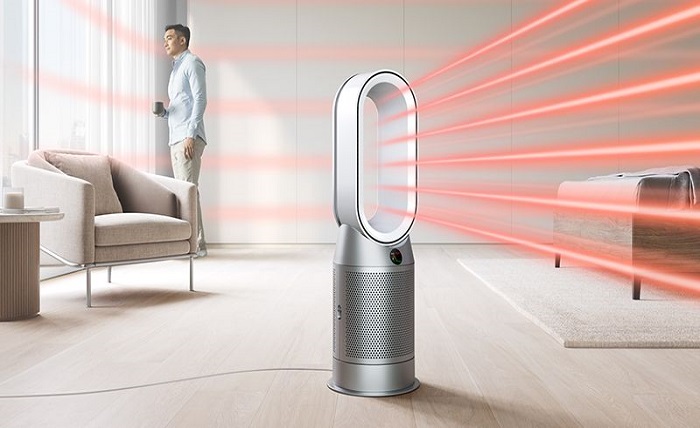The Ultimate Guide To Choosing The Right Air Purifier

In today’s world, the importance of clean air cannot be overstated. While our homes serve as sanctuaries of comfort, the air inside can often harbour pollutants, allergens, and other unseen particles that impact our health and well-being. This is where innovative brands like Molekule come in, offering advanced air purification technology designed to tackle airborne contaminants at the molecular level. In this ultimate guide, we’ll explore how air purifiers work, the different types available, and key features to consider when choosing one. Let’s dive in and discover how to make the best choice for improving our indoor air quality.
Understanding Air Purifiers: What You Need To Know
How Air Purifiers Work
Air purifiers operate using various technologies to filter out harmful particles from the air. At the core of most air purifiers are filters that trap pollutants such as dust, pet dander, pollen, and smoke. The most common type, HEPA (High Efficiency Particulate Air) filters, use a dense mat of fibers to capture particles down to 0.3 microns in size, at a rate of 99.97% efficiency.
Plus to mechanical filtration, some air purifiers utilise activated carbon layers to absorb gases and odours. Others may incorporate UV light technology to neutralise airborne pathogens. Understanding these mechanisms helps us recognise the effectiveness of various models available on the market.
Benefits Of Using An Air Purifier
Investing in an air purifier offers numerous health benefits. Firstly, it significantly reduces allergens and irritants in our indoor spaces, making it essential for allergy sufferers. Improved air quality can lead to better respiratory health, reducing the risk of asthma attacks and other respiratory issues.
Also, air purifiers can help eliminate unwanted odours from cooking, pets, and smoke, contributing to a more pleasant home environment. They can also reduce the presence of volatile organic compounds (VOCs), which may be emitted from household products and furnishings. Overall, incorporating an air purifier into our space enhances comfort and well-being.
Types Of Air Purifiers
HEPA Filters: The Gold Standard
HEPA filters remain the gold standard in air purification. They efficiently capture particles as small as 0.3 microns, which includes mould spores, dust mites, and some bacteria. When selecting a purifier, look for those that are certified HEPA, ensuring optimal performance.
Activated Carbon Filters
Activated carbon filters are effective for absorbing gaseous pollutants and unpleasant smells. They work by trapping chemicals through adsorption. While they may not capture particulate matter as efficiently as HEPA filters, they complement them nicely, making a combination of both an excellent choice for overall air quality.
UV Light Air Purifiers
These purifiers use ultraviolet light to kill bacteria, viruses, and mould spores. While they are not effective for particulate matter, they are a great addition for those concerned about pathogens in the air. When combined with HEPA filtration, UV purifiers can provide a comprehensive air-cleaning solution.
Choosing The Right Size For Your Space
Room Size And Coverage
When choosing an air purifier, one of the most critical factors is its coverage area. Each model will specify the square footage it effectively purifies. For larger rooms, we should look for purifiers with higher clean air delivery rates (CADR), ensuring they can handle the space efficiently.
Portability Considerations
Consider whether we want a stationary purifier for a specific room or a portable one that can be moved to different areas of our home. Some models are lightweight and easy to transport, making them ideal for various settings.
Noise Levels And Design Features
Decibel Ratings Explained
Noise levels are an essential consideration, especially in quiet settings like bedrooms or offices. Decibel ratings indicate how loud the unit operates. Generally, we’d want a model with a noise level below 50 decibels for a comfortable experience, allowing us to work or sleep undisturbed.
Aesthetic Factors
Air purifiers come in various styles and colours, so we can find a model that fits our décor. Contemporary designs can seamlessly blend into our home environment, making them not just functional but also visually appealing.
Energy Efficiency And Cost Of Operation
Operational Costs To Consider
Aside from the upfront cost of the unit, it’s important to evaluate the ongoing operational costs, including energy consumption. Look for units with Energy Star certification, as these are specifically designed to operate using less electricity without compromising performance.
Eco-Friendly Options
Many brands are increasingly focusing on creating eco-friendly air purifiers. These models are built using sustainable materials and energy-efficient technologies. Choosing such options not only benefits our health but also has a positive impact on the environment.
Maintaining Your Air Purifier
Filter Replacement Guidelines
Regular maintenance is crucial for our air purifier to perform at its best. We should follow the manufacturer’s recommendations about filter replacement. Some purifiers come with filter alert systems, making it easier for us to keep track of when to change them.
Cleaning And Care Tips
Beyond filter replacements, it’s wise to clean the exterior and any pre-filters regularly. Dusting and wiping down surfaces can prolong the life of our air purifier and maintain its efficiency. A simple monthly clean can keep everything running smoothly and ensure the best air quality.
Conclusion
Choosing the right air purifier involves understanding its features, types, and maintenance requirements. By considering factors such as room size, filter types, noise levels, and energy efficiency, we can make an well-informed choice that significantly improves our indoor air quality. With the right air purifier, we not only create a healthier living environment but also enhance our overall well-being.




